International
González Urrutia asks Maduro to stop “violence” and accept “what expressed” in the stest
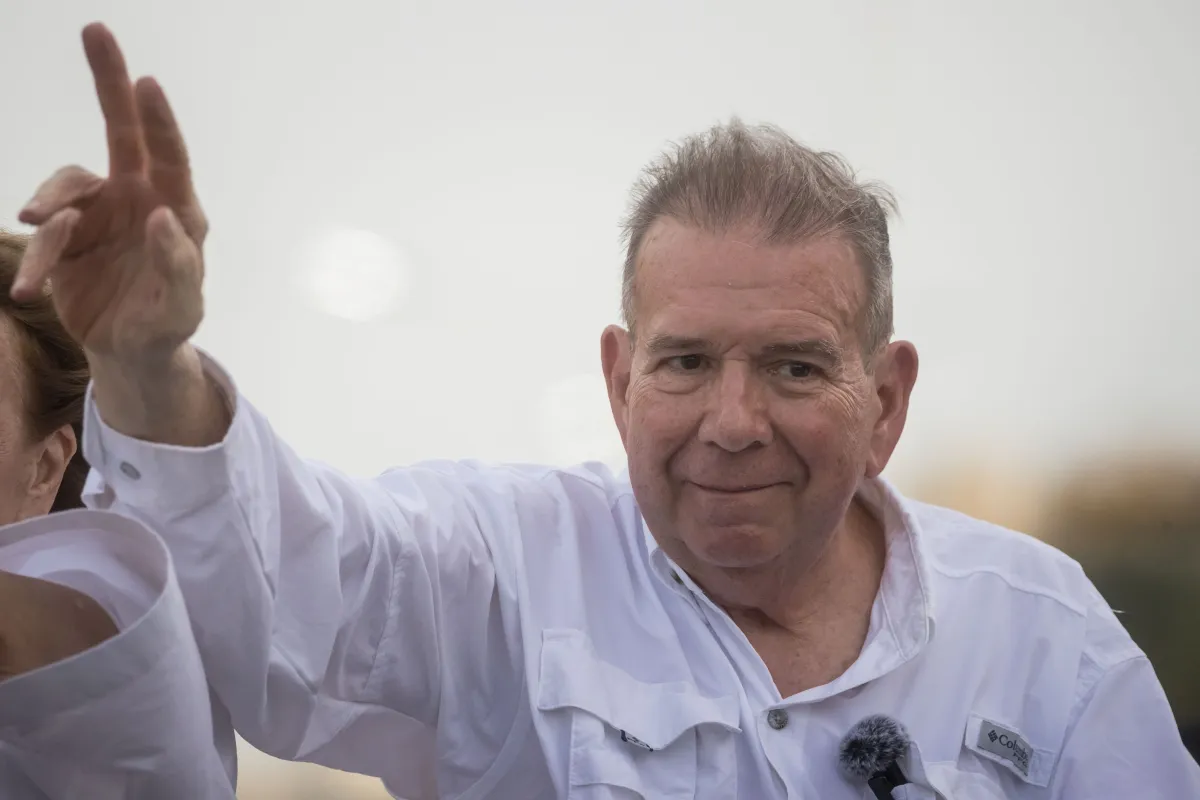
The standard-bearer of Venezuela’s main opposition coalition, Edmundo González Urrutia, asked President Nicolás Maduro to stop the violence unleashed after the July 28 elections – whose official result gave the victory of the Chavista leader – and accept that he lost the elections, as assured by the anti-Chavista bloc and some international observers.
“I call on you on behalf of all Venezuelans to stop the violence and persecutions and immediately release all the compatriots arbitrarily detained,” said the diplomat, in a video he shared through X, alluding to the more than 2,400 arrests that have taken place in the context of the post-election protests.
“Enough of persecution and violence, enough of trying to sow terror, enough of disrespecting the will of Venezuelans for change. Accept what is expressed by our people and let’s all begin to get our country out of this crisis,” continued González Urrutia, who claims to have won the elections by a wide margin.
He reiterated that demanding compliance with the Constitution, “protesting peacefully to make the will of millions of Venezuelans respected,” having worked as an electoral witness on July 28 and reporting what happened that day “is not a crime.”
“Crime is not to accept the will of our people, crime is to disappear, persecute, imprison and unjustly condemn hundreds of innocent citizens, crime is to savagely repress peaceful protesters,” he stressed.
This pronouncement comes hours after the PUD denounced, on the same social network, that “repression and political persecution have reached inhuman and critical levels,” since “dozens of adolescents, hundreds of women and men have been kidnapped for expressing their will for change and a better future.”
According to the NGO Foro Penal, which leads the defense of those considered political prisoners in the country, so far there have been 1,303 verified arrests, produced in the post-election situation, which includes 170 women, 116 adolescents, 14 indigenous people and 16 people with some disability.
In the context of the protests, violent and vandalism events were recorded, resulting in 24 civilians killed – according to the NGO Provea – as well as two soldiers killed and about a hundred security agents injured.
The National Electoral Council (CNE), which claims to have suffered a cyber attack on voting day, has not yet published the disaggregated results that confirm Maduro’s victory, a silence that has been questioned by numerous countries and organizations, including the Carter Center, which participated as an observer in the elections.
International
Sheinbaum highlights anti-drug gains after U.S. says challenges remain
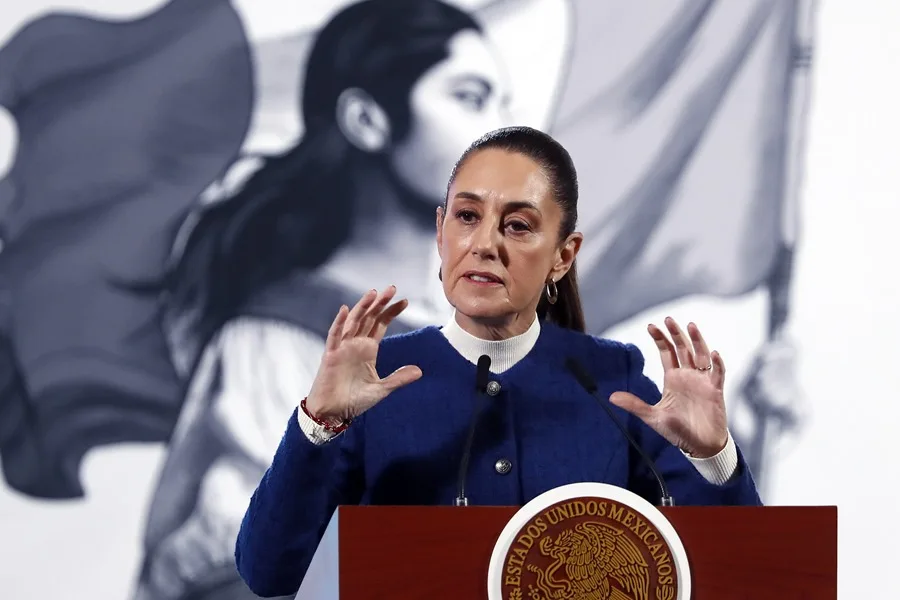
Mexican President Claudia Sheinbaum on Friday highlighted her government’s achievements in the fight against drug trafficking, after the United States said challenges remain in combating organized crime.
On Thursday, Mexican Foreign Minister Juan Ramón de la Fuente held talks with his U.S. counterpart, Secretary of State Marco Rubio. Following the meeting, the U.S. State Department said in a statement that “despite progress, challenges still exist” in addressing organized crime.
“There are very strong results from joint cooperation and from the work Mexico is doing: first, a 50% reduction in fentanyl seizures at the U.S. border,” Sheinbaum said during her regular morning press conference.
The president also said that authorities have seized nearly 320 tons of drugs and that there has been a “40% decrease in intentional homicides in Mexico” since the start of her administration on October 1, 2024.
Sheinbaum added that the United States should implement campaigns to reduce drug consumption within its territory and curb the flow of weapons into Mexico.
“There are many results and there will be more, but there must be mutual respect and shared responsibility, as well as respect for our sovereignties,” she said.
On Monday, Sheinbaum held a phone call with U.S. President Donald Trump to discuss security issues. She said she once again ruled out the presence of U.S. troops in Mexico to fight drug cartels.
Security has been a recurring issue used by Trump to threaten tariffs on Mexico and to pressure negotiations over the USMCA (T-MEC) free trade agreement, which are scheduled for 2026.
The agreement is crucial for Mexico’s economy, as about 80% of the country’s exports are destined for the United States.
International
Canada accuses Iran of killing its citizen during anti-government unrest
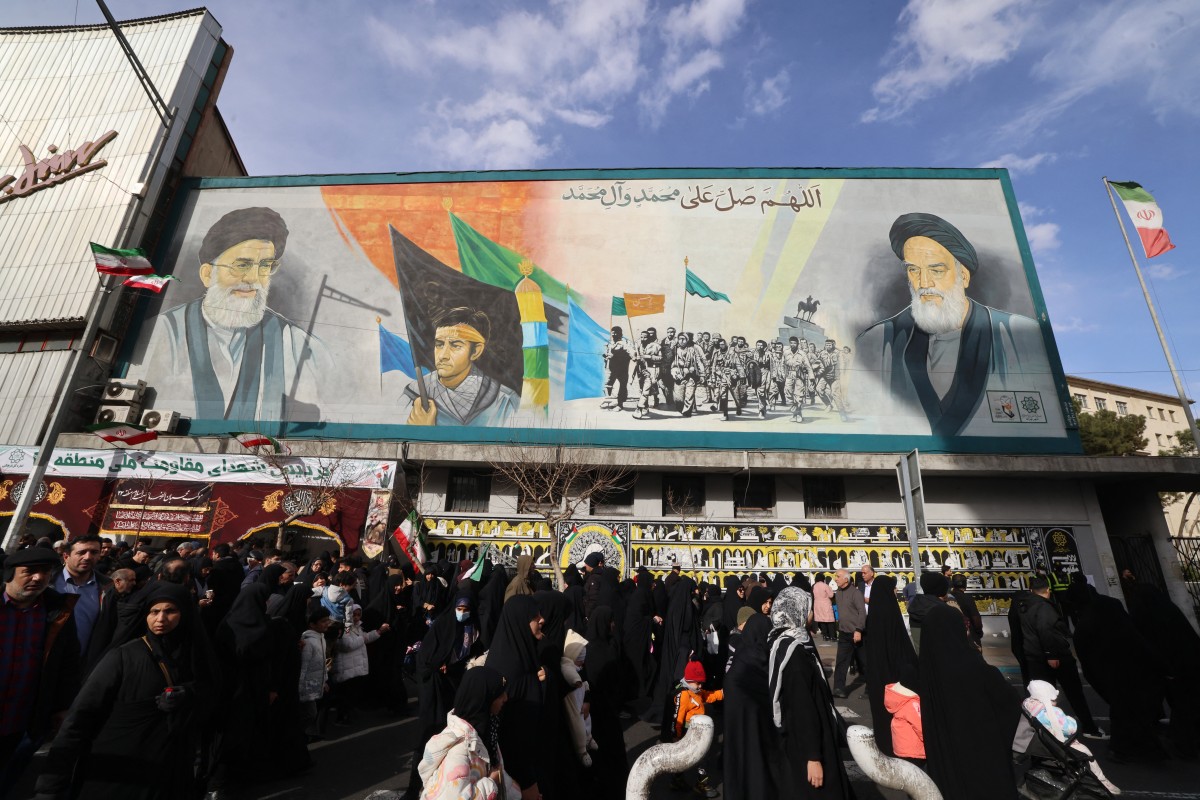
A Canadian citizen has died “at the hands of Iranian authorities,” the Canadian government said on Thursday, amid ongoing protests against the government in Tehran.
“I have just learned that a Canadian citizen has died in Iran at the hands of Iranian authorities,” Canada’s Minister of Foreign Affairs, Anita Anand, said, without providing further details. She added that Tehran’s response to what she described as “peaceful protests” has “led the regime to show a blatant disregard for human life.”
On Thursday, the United States imposed sanctions on Iranian security officials and individuals linked to the country’s banking networks, accusing them of orchestrating a violent crackdown on peaceful demonstrations and laundering billions of dollars in oil revenues. U.S. Treasury Secretary Scott Bessent announced the measures following what were described as the largest anti-government protests in the history of the Islamic Republic, although demonstrations have reportedly eased in recent days amid heavy repression and a near week-long internet shutdown.
“The United States stands firmly with the Iranian people in their pursuit of freedom and justice,” Bessent said in a statement, adding that the sanctions were imposed at the direction of President Donald Trump.
Those sanctioned include Ali Larijani, secretary of Iran’s Supreme National Security Council, whom Washington accused of coordinating the repression and the use of force against protesters.
International
Ukraine declares nationwide energy emergency amid russian attacks and extreme cold
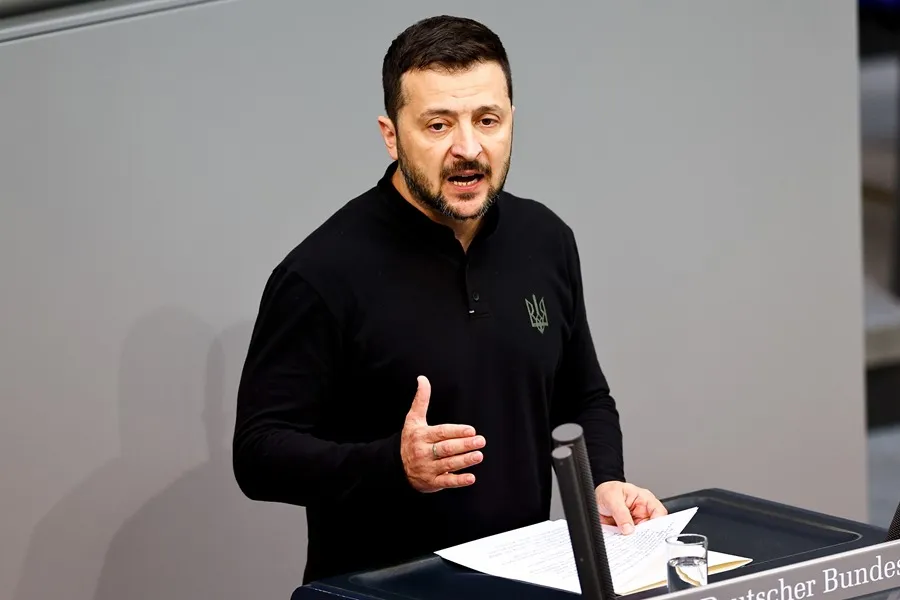
The Ukrainian government on Wednesday declared a nationwide energy state of emergency amid continued Russian military attacks and extreme winter weather, with nighttime temperatures dropping as low as minus 18 degrees Celsius.
“The consequences of Russian attacks and worsening weather conditions are severe (…) Overall, a state of emergency will be declared for Ukraine’s energy sector,” Ukrainian President Volodymyr Zelensky said in a statement posted on social media following a meeting with senior officials.
Zelensky announced the creation of a “permanent coordination headquarters” to manage the crisis in the capital, Kyiv, and tasked former defence minister and current energy chief Denys Shmyhal with overseeing support efforts for affected individuals and communities, including addressing power outages, heating shortages and other “practical issues.”
“There are many problems that require urgent solutions,” the president said, noting that repair crews, energy companies, municipal services and the State Emergency Service are working “around the clock” to restore electricity supplies. Kyiv has been particularly affected after Russian strikes last Friday disabled key parts of the power grid, as daytime temperatures hover around minus 12 degrees Celsius and plunge to minus 18 at night.
Zelensky added that public authorities will “maximize efforts with partners to obtain the necessary equipment and additional support,” while the government will ensure “maximum deregulation of all processes” to speed up the connection of backup power equipment to the grid. He also confirmed that work is underway to significantly increase electricity imports into Ukraine.
The Ukrainian leader further instructed his Cabinet to review curfew regulations in light of the extreme cold, arguing that citizens must have the greatest possible access to assistance centers, while businesses should be given flexibility to plan their operations according to the state of the energy system.
-

 International3 days ago
International3 days agoDeadly van accident near Brazil border leaves 11 dead in Bolivia
-

 International3 days ago
International3 days agoU.S. to host Danish and Greenlandic Foreign Ministers at the White House
-

 Central America3 days ago
Central America3 days agoU.S. and El Salvador maintain close partnership, embassy says
-
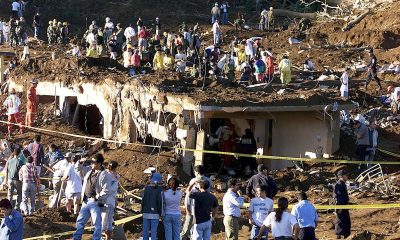
 Central America3 days ago
Central America3 days agoTaiwan’s $10 million donation after 2001 earthquakes allegedly diverted in El Salvador
-
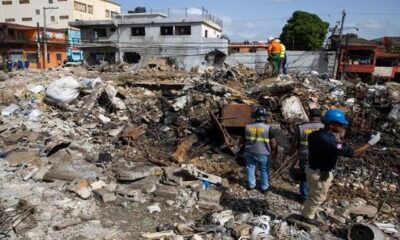
 International3 days ago
International3 days agoDominican court postpones hearing in deadly nightclub collapse case
-

 International3 days ago
International3 days agoPolice hunt gunmen after fatal shooting in Corsica
-
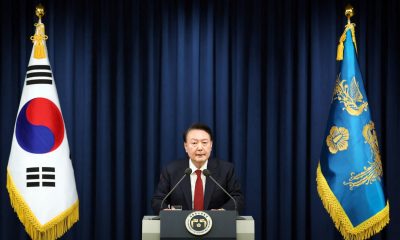
 International3 days ago
International3 days agoEx-President accused of bid to establish dictatorship as verdict nears in South Korea
-

 International3 days ago
International3 days agoVenezuelan opposition leader dedicates Nobel Prize to Trump
-
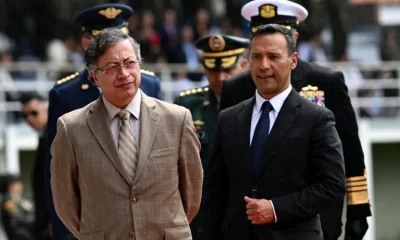
 International2 days ago
International2 days agoColombian Defense Chief Meets U.S. Officials to Advance Bilateral Narcotics Strategy
-

 International2 days ago
International2 days agoIran closes airspace amid U.S. threats and deadly nationwide protests
-

 International2 days ago
International2 days agoUkraine declares nationwide energy emergency amid russian attacks and extreme cold
-
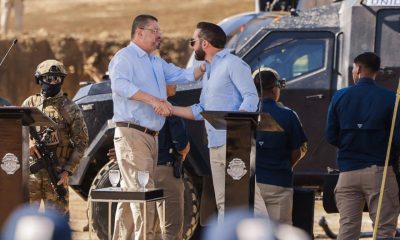
 Central America2 days ago
Central America2 days agoBukele warns crime can become a ‘parallel government’ during visit to Costa Rica
-

 International2 days ago
International2 days agoX moves to block Grok from creating sexualized images of real people amid legal scrutiny
-
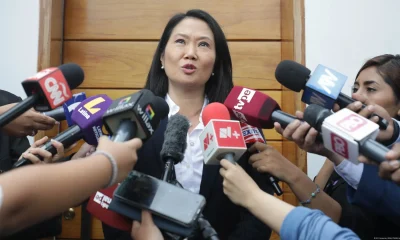
 International2 days ago
International2 days agoPeruvian Court Orders Definitive Dismissal of Money Laundering Case Against Keiko Fujimori
-

 International2 days ago
International2 days agoFrance joins Denmark’s ‘Operation Arctic Resistance’ in Greenland amid U.S. tensions
-

 International2 days ago
International2 days agoU.S.–Denmark tensions escalate as Trump pushes NATO to back U.S. claim on Greenland
-
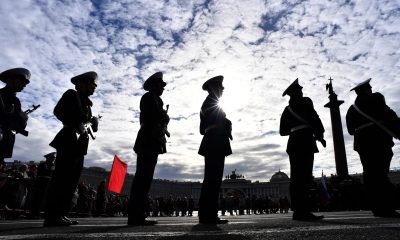
 International2 days ago
International2 days agoUK Intelligence estimates russian casualties in Ukraine at over 1.2 million
-
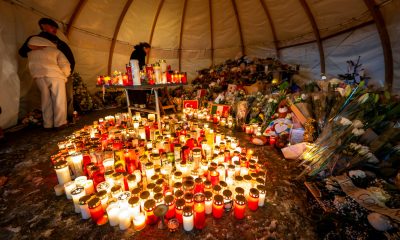
 International2 days ago
International2 days agoSwiss Canton of Valais Grants Emergency Aid to Victims of Crans-Montana Bar Tragedy
-

 International2 days ago
International2 days agoHillary Clinton skips Epstein inquiry as house panel threatens contempt charges
-

 International2 days ago
International2 days agoU.S. to suspend visa processing for applicants from 75 countries
-
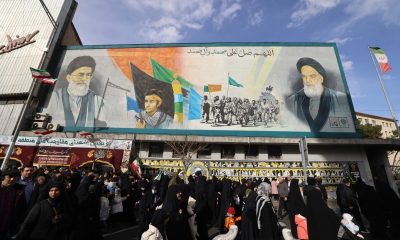
 International7 hours ago
International7 hours agoCanada accuses Iran of killing its citizen during anti-government unrest
-

 International7 hours ago
International7 hours agoSheinbaum highlights anti-drug gains after U.S. says challenges remain


























